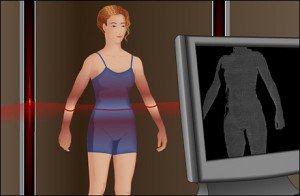Big Data Goes Beyond “Big”
On Friday, I made the average contributions to big data that most college students do. However, I also became part of medical big data in two ways. I set my alarm on my iPhone for 8:03 A.M., which I’m sure Apple collects to see when it’s users are most frequently still in bed, scrolling through their phones. I did my morning routine of checking Facebook, Instagram, and Snapchat, which collected information about when I logged in, every link I clicked on, and who I communicated with. Then, I checked my two email accounts, giving data about me from my email to my phone and vice versa. I don’t have classes on Friday, but I woke up so early because I recently adopted a dog (and all my information at the shelter went straight to some big data compilation) and he had his first vet appointment. I made that appointment on an online portal with other browser tabs open. It is at this point that I am realizing how much I contribute to big data without thinking twice about it. I entered the address of the vet in my GPS, using my “current location,” giving Google Maps and Apple knowledge of my location. At the vet, I had to fill out new patient forms, with not just information about my dog, but about myself as well. Just like a human doctor, all of his information, from his weight to his temperature, gets entered in a patient portal. I used my credit card to pay for the appointment, though I did not use the chip. We left and went to the dog park which has no phone reception so I was big data free (maybe)! I dropped the dog off at my boyfriend’s house, where my phone automatically connects to his wifi. I, too, had a doctor’s appointment that day at the student clinic, an appointment I had made online as well through a portal. I went and checked in, online of course, and, just like my dog, had my height, temperature, weight, blood pressure, etc. on a tablet that I’m sure puts my information with all other students if not an even larger big data compilation. Because of HIPAA, I’m optimistic that not all of my information is shared on a massive server, but realistically, it probably is. I used a credit card there as well to purchase my prescriptions and then drove home. Driving through all these stoplights, I realized that at each intersection, there are probably cameras counting my car as a tally mark, or at least sensors that do the same. I had been invited through a Facebook group to a party that I could no longer attend thanks to the medicine and how sick I felt so I went to the event page and wrote out a quick apology. As soon as I hit enter on the post that contained the word “Bronchitis,” my Facebook ads went to WebMD. I ordered Chinese food for pick up, and I’m sure my order was noted (which is how they get the “best seller” option). I picked it up and used my card again. I went home and ate while binge watching the new season of Parks and Recreation on Netflix. Netflix had to ask if I was still watching so I’m sure they’re not the only source out there who knows how much I watched. I was chilly going to bed so I turned up the heating and realized that the electric companies probably even track the average temperatures, beyond just energy use. I laid in bed and did the standard, pre-bed trio of Facebook, Instagram, and Snapchat, then went to bed.
I’m sure that there are ways I contributed to big data that I didn’t even touch on. However, having written it down, I realized that I am constantly being tracked and monitored, which is honestly a little creepy. The NSA could know my favorite Chinese food if they cared enough – that’s crazy! This day would probably say that I’m a hypochondriac because of my double doctor day. It would probably also view me as lazy, as I did not work and watched a lot of television. They would probably assume that I was either a student or unemployed, therefore, I would probably be targeted for discount goods and, potentially, jobs or job search outlets. To omit yourself from the contribution of big data would be to cut yourself off completely from civilization. If you go anywhere, talk to anyone, or do anything, it’s tracked. You’re a tally mark on someone’s list. Therefore, if you opt-out of giving social media rights to your account and interactions, you’re opting out of social media because the two go hand-in-hand; they won’t let you have a Facebook without allowing them rights and access to your account. I suppose one could keep their money “untraceable” by using only cash and never having a bank account but in order to be a functioning adult in this society, you need some form of credit that paying in cash will never give you. Ron Swanson, on Parks and Recreation attempts this, as he doesn’t have a bank account and keeps his savings buried in gold. But much like Leslie Knope’s hopes and dreams on the same show, it is an unreasonable feat.
Because I had such a “medical” day on Friday, my tomorrow question is as follows: In what calendar year will there be sensors in doorways of doctors offices that scan you, collect your weight, height, temperature, etc., and upload it to their system automatically? It’s more efficient, certainly, and eliminates human error as well as skewed results from the fact that doctors make people nervous.

 Previous Post
Previous Post Next Post
Next Post
Oh goodness, I can just imagine walking into a doctors office, hearing a beep, followed by “Thank you for filling out your medical history form! The doctor will be with you soon Mr./Mrs. So-and-So!” I mean, the technology is out there for people to just send their fit bit/jawbone info to their doctors. Since those devices monitor heart beat as well, I can imagine them being used in hospitals, retirement homes and rehab centers to monitor patients 24/7. I mean, who’s to say that this kind of data isn’t already being collected and sold to medical companies? There could be targeted ads to people based on their heart rate! For instance, one day your fitbit notices that you haven’t exercised lately, and the next day you start seeing a bunch of ads on Facebook about local Zumba classes and the like.
How long were the Web MD Ads on your Facebook after you posted it on an event page? You’re probably right about data being collected and it being marked as a little strange that you went to two doctors today, but maybe that data overlooks the reason that both you and your new dog needed to see a physician.
Thanks for the great post, and interesting future question. It seems we are certainly headed down that path, but another question we might need to ask is who will own the data that is collected about our health? Check out this post about the data generated by an implanted heart defibrillator: http://www.slate.com/articles/technology/future_tense/2015/03/patients_should_be_allowed_to_access_data_generated_by_implanted_devices.html